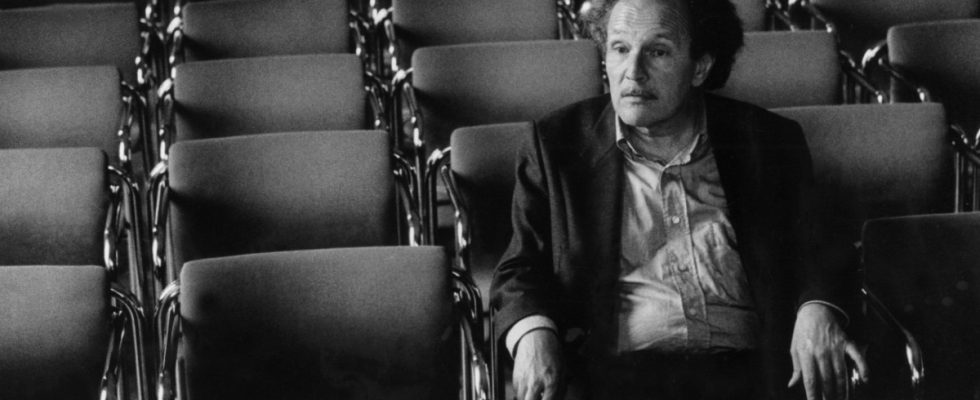“I dwell in possibility – a house fairer than prose – Has windows innumerable – And doors – as far as the sky,” wrote Emily Dickinson. The life of the American poet has long since become a myth: as Lady in White, who lived in seclusion in her parents’ house in Amherst until her death in 1886, she has gone down in literary history. In contrast, her bold poems know no limits. Every line breathes modernity. Whether she was aware of it herself is another question. In letters she expresses doubts. “Are you too busy saying if my verses are alive?” she asks one of her many correspondents.
During her lifetime not even a dozen of her almost 1800 poems, which are only insufficiently described with the label nature poetry, reached the public. 77 has Kai Grehn for his radio play “Do you like Emily Dickinson?” selected, supplemented by expressive passages from letters that show the poet between washing the dishes and bouts of depression. Grehn did not use the exemplary translation by Gunhild Kübler, which has been available as a complete edition from Hanser Verlag for several years. Instead, he translated himself so that the poems would fit better into his fragile, sensitive production for the American band CocoRosie around the siblings Bianca and Sierra Casady delivers the appropriate sound. The melody of a music box sets the tone for the radio play produced two years ago by Radio Bremen and Deutschlandfunk, in which the wind often blows and the rooster crows. It was recently released on a major label and is probably one of the most beautiful of recent times (1 CD with a running time of 67 minutes).
Kai Grehn: “Do you like Emily Dickinson?”
(Photo: Two thousand and one)
This is mainly due to Birgit Minichmayr, who interprets the poems with her smoky voice, empathetically, but always far from sentimentality. Dickinson celebrates the beauty of life, yet recognizes its ephemerality. Her own claim to literature applies: “When I read a book and it makes my whole body so cold that no fire can warm me, I know that is poetry.”
While the “Dickinson” production is available in a high-quality cover artwork, which also includes all 77 poems in German and in the original English, there is Michael Rotschopf’s reading of Peter Kurzeck’s associatively linked memoir “And where my house?” only as a download (speak low in cooperation with Hessischer Rundfunk 2023, running time 225 minutes).
The fragment from the estate published by Rudi Deuble is the eighth volume of the twelve-volume cycle of novels “The Old Century”, the completion of which Kurzeck was not allowed to live to see. The author from the Sudetenland, who as a child ended up with his family in Staufenberg near Giessen, died in 2013 at the age of 70. Volume five had just come out.
Peter Kurzeck: “And where is my house?”
(Photo: speak low)
In “And Where My House?” A train journey from Frankfurt to Giessen in the early 1980s triggers a stream of memories in the first-person narrator, who says of himself that he has carefully saved every moment of time. It leads back to post-war Hesse. “Grey”, “wet gray”, “Germany gray” images arise from the five-year-old boy who, shortly before the currency reform, goes shopping with his mother in Giessen.
Images of a strange, wild terrain made of rubble, handcarts and American jeeps, with “the skinny Germans” in between. Or from Displaced Persons, which one encounters everywhere. Or from the father at the dining table, who is constantly reading alternately from the Bible and from “Faust”. Over time, Michael Rotschopf’s springy reading develops a pull that one cannot escape.
“I love the sea like my soul,” Heine wrote with a view of the North Sea. Gert Heidenreich prefaced his long poem “Das Meer” with this sentence, which he also read himself for Griot Hörbuchverlag, calm and intimate (3 CDs with booklet, running time approx. 210 minutes). The writer and audio book narrator has lived alternately in Bavaria and Normandy for many years.
The Sea – Atlantic Song. An epic read by the author, with music by Julian Heidenreich.
(Photo: Griot Audiobook)
In French it is “la mer”, which is why Heidenreich also addresses it as “madame”, “wild beauty” or “French girl”. “Atlantic Song”, the subtitle of the epic verse in 28 sections, has unmistakably the features of a stormy love affair, you sometimes give each other the cold shoulder, only to return remorsefully. Heidenreich engages in dialogue, wonders how old his “beloved” is geologically, admires her waves, the surf. But also worries about their well-being in the face of homo plasticus pollution.

